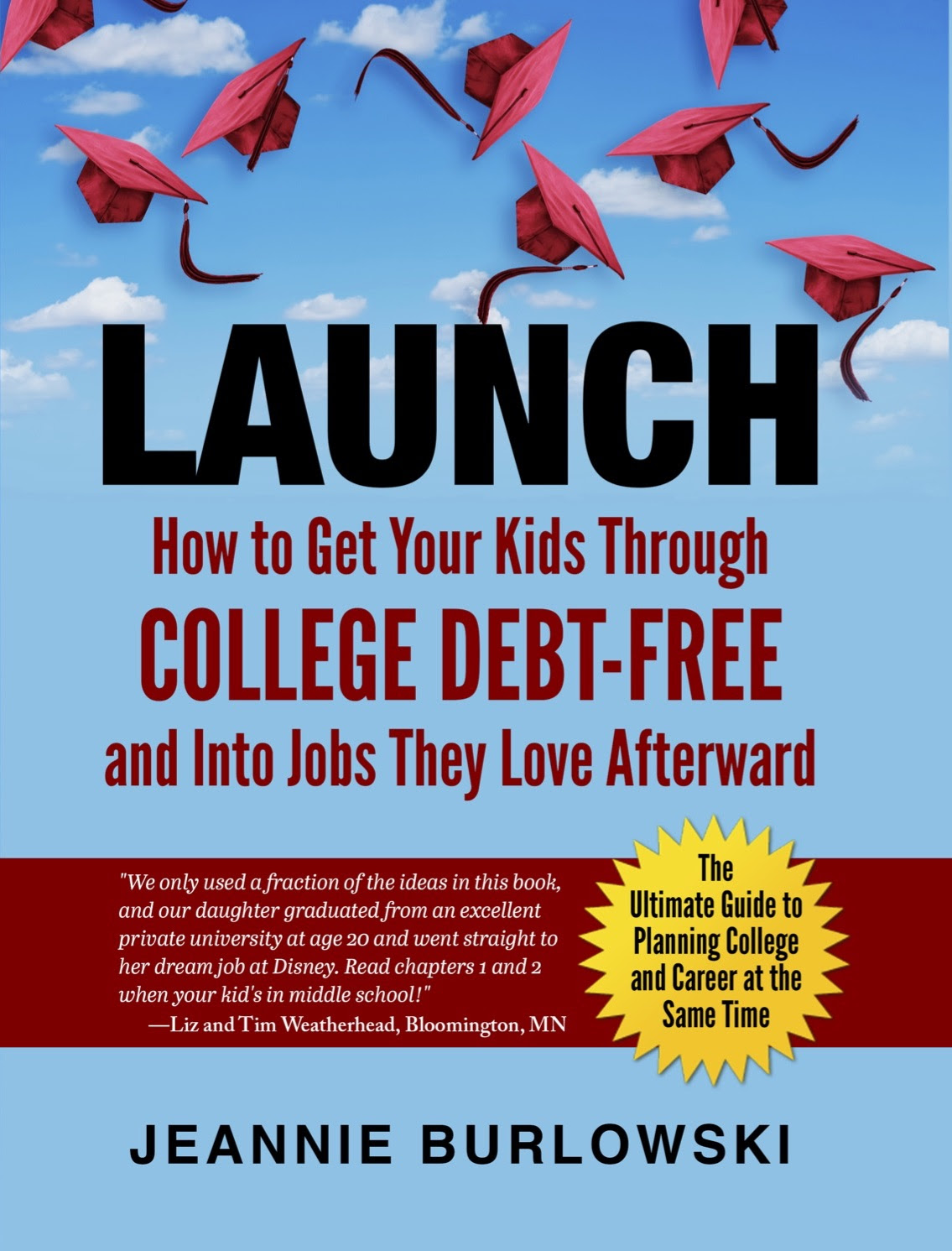A couple of weeks ago I wrote a post for parents who erroneously believe that if they’ll just refuse to put their financial info on their child’s FAFSA form, their child will get additional financial aid for college.
Student, if your parents are refusing to help you—here’s what you can do to help yourself.
1. Remember, the FAFSA is the most common financial aid application form, and it requires only the financial information of “certain parents.”
The FAFSA requires only the household financial information of the parent who provided the most support for you* during the 365 day period being examined for your financial aid eligibility. (This “household financial info” will include that parent’s current spouse as well, so be aware of that.) The parent providing the lesser amount of support for you isn’t looked at at all on the FAFSA form, so don’t worry about that person.
* This is accurate as of October 17th, 2024.
2. Gently, with great respect, ask the parent(s) who’ve contributed the most to your support to reconsider.
This post may be all you need to change your parents’ minds and influence them to at least fill out the forms so that you can get lower interest loans for college and pay for it yourself, if that becomes necessary.
If they still won’t (or can’t) help you, try these more drastic measures.
3. Talk to someone in a college financial aid office.
Schedule a phone or in-person appointment with a staff person in a college financial aid office. Talk to him or her about this.
Sometimes financial aid officers are able to talk to parents and convince them that it’s safe and confidential for them to at least fill out the financial aid forms—even if the parents are firmly set against paying any money.
In some very very rare instances the college’s financial aid office may even be able to grant you independence from your parents by providing you with what is called a “dependency override.” “Dependency overrides” are very difficult to get, though, and are usually reserved for unusual circumstances where:
- Parents are incarcerated or presumed dead
- Student was sexually or physically abused by the parents or can document a hostile or neglectful relationship with his/her parents. The student will need to provide copies of protection from abuse orders, court documents, social worker reports, doctor reports, police records, and letters from clergy, as appropriate.
- Parents cannot be located. For example, a student who emigrated to the U.S. without his/her parents, became a U.S. citizen, and has not been able to contact his/her parents (or even know whether they are still alive).
- Student was legally adopted by their current guardian.
- Student is Amish and has been shunned or banished because of his or her desire to seek an education and as a result no longer has any contact with family.
The college financial aid office will also have special help for you if you are homeless.
4. Don’t even think of forging anything.
Whatever you do, don’t be tempted to forge financial aid application forms and sign your parents’ names to them. The penalties are severe, and you’ll most certainly be caught when the FAFSA form you fill out doesn’t perfectly match your parents’ tax returns.
5. If you’re thinking of getting married to increase your financial aid eligibility, be careful of two things that can mess you up financially:
First, what matters is your marital status as of the date you submit your next FAFSA form. If you submit your FAFSA form on the first of the month and get married five days later, you will be considered dependent on your parents for financial aid purposes for the entire upcoming year. Federal law specifically prohibits colleges from changing a student’s marital status in the middle of a year.
Second, you may see some extra financial aid benefit if your married household income ends up to be less than your parents’ income, however—remember that your new spouse’s income and assets will count as your income and assets in your financial aid application calculations. If your new spouse is wealthier than your parents are, that may negatively affect how much financial aid you’ll be awarded for college.
6. If your parents are afraid to fill out the FAFSA because of their citizenship status, here’s good news.
The U.S. Department of Education says this:
“Your parents’ citizenship status does not affect your eligibility for federal student aid. In fact, the FAFSA doesn’t even ask about your parents’ status. If your parent does not have a Social Security number, you may enter all zeroes for him or her on the FAFSA where it asks for that information.”
If you, as the financial aid applicant, were born outside the US, here’s special information for you.
7. If worse comes to worse, you can hire an attorney to help you.
It is possible for you to hire an attorney to petition the court to have your parents’ parental rights terminated on the grounds of abandonment. In order for the court to grant this petition, though, you will likely need to provide evidence that your parents have ceased all support for and contact with you for at least one year.
8. If you’ll be in college next year, try to coax your parents to fill out the FAFSA as soon as it becomes available this coming fall.
It usually becomes available October 1st each year, but in 2024 it will become available December 1st.
Fill it out as soon as it becomes available, and you’ll put yourself first in line for financial aid money.
Remember, the best idea is for you and your parents to fill out the FAFSA form every year, even if your parents are rich.
9. Read the article I’ve written on how you can get the most free money out of the FAFSA form.
You’ll find that article here.
Remember, getting financial aid and scholarships is only a small part of the picture when it comes to getting through college debt-free.
For clear, step-by-step help with the whole process, get your copy of my book:
Important—> It’s a reference book, so nobody reads the whole thing cover to cover. Pick out what you need to read in it using the fast-paced, 10-minute video instructions here.
You can see hundreds of reviews of this book on Amazon by going to:
Read just one chapter of LAUNCH every 1–3 months while your child’s in middle school and high school, and you’ll know every viable strategy for debt-free college at exactly the right time to implement it.
And if your child’s already well past middle school? That’s OK; you can run to catch up. But the process of getting your kids through college debt-free goes more smoothly the earlier you start—especially if you’re not planning to save up any money to pay for college.
Let's you and I walk together toward the goal of debt-free college for your kids.
We can accomplish this no matter your current income level—even if your kids never get a single scholarship.
Your first step is getting regularly scheduled, free helpful articles from me—right in your email inbox. Quick, sign up here.
Do you have very specific questions for me about debt-free college and career for your kids?
My TRIBE Members get the most direct access to me—while feeling good that the pennies per day they spend on the TRIBE help me bring debt-free college strategy to families who could never afford to pay for it. Join my TRIBE Membership waiting list here. (The parent testimonials you'll see there are so encouraging!)
Who is Jeannie Burlowski?
Jeannie is a full-time academic strategist, podcast host, and sought-after speaker for students ages 12–26, their parents, and the professionals who serve them. Her writing, speaking, and podcasting help parents set their kids up to graduate college debt-free, ready to jump directly into careers they excel at and love. Her work has been featured in publications such as The Huffington Post, USA Today, Parents Magazine, and US News & World Report, as well as on CBS News.
Jeannie also helps students apply to law, medical, business, and grad school at her website GetIntoMedSchool.com. You can follow her on Bluesky @jburlowski.bsky.social.
No part of this article was written using AI.
This article was updated on October 17th, 2024.



